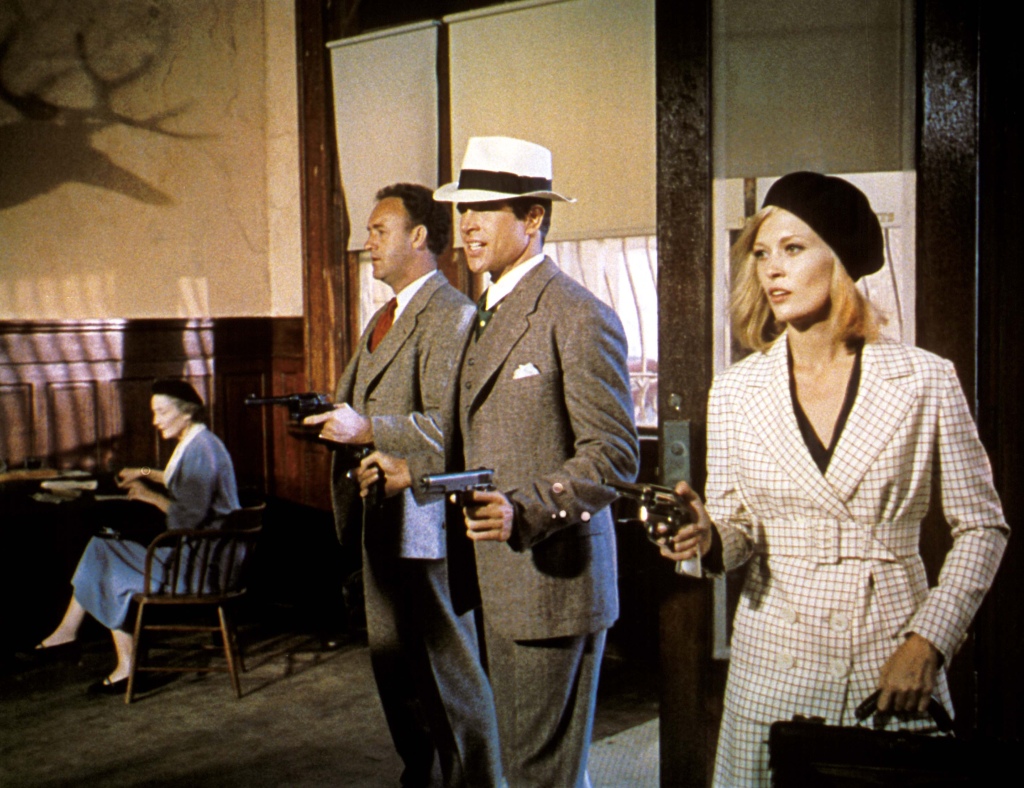Bonnie and Clyde (Arthur Penn, 1967) follows two young people, Bonnie Parker and Clyde Barrow, who travel Texas and rob banks. The film follows their rampage across the county as they gain new members to their ‘Barrow Gang’, showing us their ethics, methods and relationships with each other, and are eventually cornered and shot down by the laws.
The film was made by Arthur Penn, who took inspiration from the French New Wave movement in Europe, where young and enthusiastic filmmakers were defying traditional forms of filmmaking by utilising low-budgets, cheap equipment and actors and going against traditional forms of filmmaking. Therefore, Bonnie and Clyde takes from many of the techniques popularised in France at the time, containing many (all deliberately) badly edited scenes, rough audio, bad acting and poor scriptwriting. Despite this, it is a completely linear narrative.
I found the film entertaining but confusing in it’s purposeful rough quality and almost ‘anti-film’ methods of conveying the story. There is no effort to immerse the audience in the story, and so the passage of time is hard to gauge and the plot feels fast and disjointed. I rate Bonnie and Clyde ★★!

You must be logged in to post a comment.